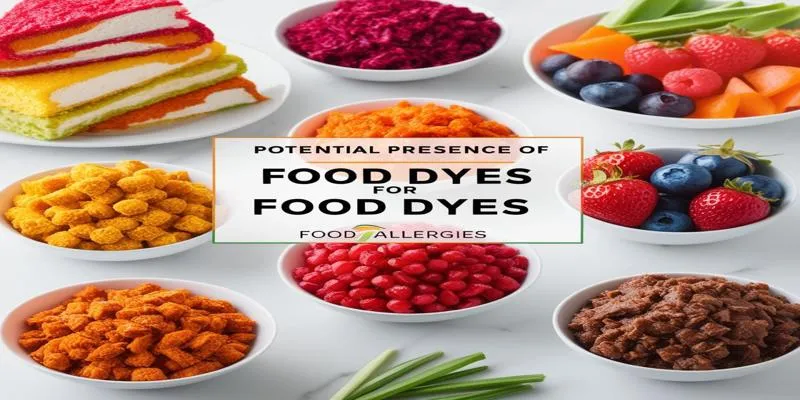Understanding Sesame Allergies: Symptoms, Treatment, and More
Are you concerned about sesame allergies? As one of the fastest-growing food allergies in the United States, millions are affected by sensitivity to sesame. Understanding the symptoms, risk factors, and treatment options for sesame allergy is crucial for sufferers and their families.
What is a Sesame Allergy?

A sesame allergy triggers an immune system reaction after exposure to sesame seeds or products containing the allergen. It’s increasingly recognized as a major food allergy, with rising prevalence worldwide.
Immune System Response
When someone with a sesame allergy ingests or contacts sesame, their immune system mistakenly identifies specific proteins in sesame as harmful. This triggers the release of antibodies, particularly Immunoglobulin E (IgE), causing various symptoms throughout the body.
Common Sources of Sesame
Sesame can be found in numerous foods and products, making avoidance challenging for those with allergies. Common sources include:
- Tahini (sesame paste)
- Hummus
- Baked goods (bread, crackers, cookies)
- Asian cuisines (stir-fries, sauces)
- Oils and dressings
Severity and Cross-Reactivity
The severity of sesame allergies varies greatly. Some individuals experience mild symptoms, while others may face severe, life-threatening reactions like anaphylaxis. Sesame allergies can also cross-react with other seeds or nuts, increasing the risk of multiple food allergies.
Symptoms of Sesame Allergies
Recognizing the signs and symptoms of sesame allergy is essential for early diagnosis and treatment. Symptoms can be mild, moderate, or severe, occurring within minutes or hours after exposure.
Common Symptoms
Indicators of a sesame allergy include:
- Skin reactions: hives, itching, or eczema
- Gastrointestinal issues: nausea, vomiting, or abdominal pain
- Respiratory problems: wheezing, coughing, or difficulty breathing
- Oral symptoms: itching or tingling in the mouth
Anaphylaxis, a potentially life-threatening reaction, requires immediate medical attention.
Anaphylaxis Warning Signs
Severe symptoms include:
- Swelling of the throat or tongue
- Difficulty swallowing or breathing
- Dizziness or fainting
- Rapid pulse or drop in blood pressure
Symptoms of sesame allergy can vary between individuals and may change over time. Some may only experience mild reactions, while others could have severe reactions even with trace exposure.
Causes and Risk Factors for Sesame Allergies

Genetic Predisposition
Sesame allergies, like many food allergies, often have genetic roots. If you have a family history of allergies, especially seed or nut allergies, your risk of developing a sesame allergy increases. However, a genetic predisposition does not guarantee an allergy will develop.
Environmental Factors
Environmental factors may also influence the development of a sesame allergy. Early exposure to sesame, especially during infancy, might affect one’s chances of developing an allergy. Additionally, increased use of sesame in foods has led to more frequent exposure, raising sensitization rates.
Cross-Reactivity
If you have other seed or nut allergies, you are more likely to develop an allergy to sesame due to cross-reactivity. This occurs when proteins in various foods are similar, prompting your immune system to react identically to those foods. For example, people with peanut or tree nut allergies are at a higher risk of reacting to sesame.
Age and Timing of Exposure
The age at which you are first exposed to sesame can impact your allergic risk. Some studies suggest that early introduction of allergens like sesame may help prevent allergies. However, the optimal timing and method of exposure remain subjects of ongoing research in allergy prevention.
Diagnosing and Treating Sesame Allergies
Diagnostic Procedures
If you suspect a sesame allergy, consult a medical professional. Your doctor will take a detailed history and perform a physical exam. They might recommend diagnostic tests such as:
- Skin prick tests: A small amount of sesame extract is applied to your skin, which is then pricked. A positive reaction indicates a possible allergy.
- Blood tests: These measure levels of sesame-specific IgE antibodies in your blood.
- Oral food challenge: Under medical supervision, you consume small portions of sesame to observe allergic responses.
Treatment Options
Currently, there is no cure for sesame allergy. The primary treatment is strict avoidance of sesame and its products. However, several approaches can alleviate symptoms and prevent severe reactions:
- Epinephrine auto-injectors: Inject epinephrine, commonly known as adrenaline, to counteract severe allergic reactions.
- Antihistamines: These medications alleviate minor symptoms like itching or hives.
- Immunotherapy: Though not widely available for sesame allergies, research is ongoing to develop effective desensitization treatments.
Living with a Sesame Allergy
Managing sesame allergies involves observing food labels and communicating your allergy to others. Educate yourself about hidden sources of sesame in foods and cuisines. Always carry your epinephrine auto-injector and wear a medical alert identification bracelet. With proper management and precautions, individuals with sesame allergies can lead healthy lives.
Living with a Sesame Allergy: Tips and Strategies
Living with a sesame allergy requires awareness and planning, but it shouldn’t limit your lifestyle. With smart tactics, you can handle daily situations safely and confidently.
Reading Labels Diligently
Always read food labels carefully, even for familiar products. Manufacturers can change ingredients without notice. Look for obvious terms like “sesame” and “tahini,” and be aware of less familiar names like “benne” or “gingelly.” If unsure, contact the manufacturer for confirmation.
Communicating Clearly in Restaurants
When dining out, inform your server about your sesame allergy before ordering. Ask about ingredients and food preparation methods. Many cuisines, especially Middle Eastern and Asian, frequently use sesame. Don’t hesitate to speak with the chef if you need more information. Consider carrying chef cards explaining your allergy in multiple languages for international travel.
Conclusion
Living with a sesame allergy requires vigilance and preparedness. Always read food labels, communicate your allergy clearly when dining out, and carry emergency medication. While living with a sesame allergy can be demanding, with awareness and management, one can lead a healthy and fulfilling life.










